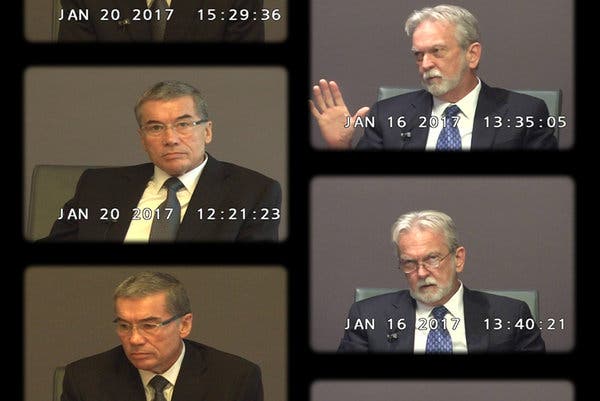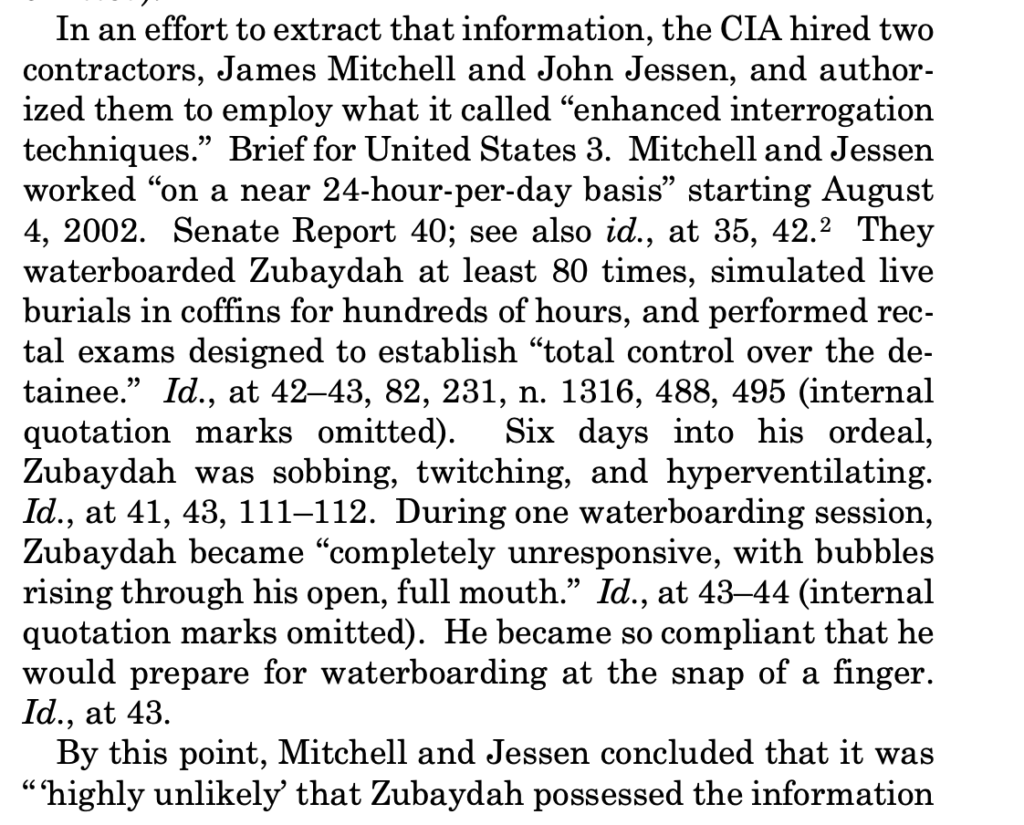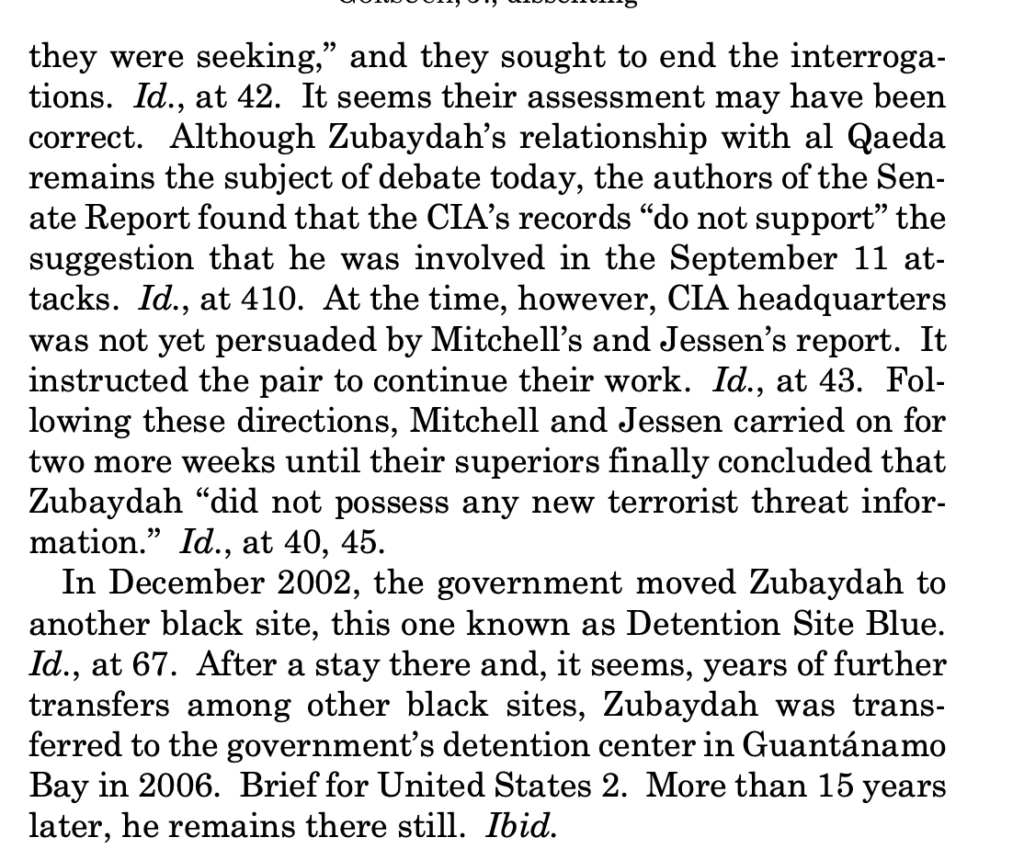“We should not let shame obscure our vision.”

Today, a fractured Court speaking through a majority/plurality opinion written by Justice Breyer — providing further evidence that Breyer falls into the Hugo Black category of “Democratic appointees who stayed on the Court about a decade too long even if it was 100% guaranteed that they would be replaced by a Democratic president — ordered 9CA to dismiss a discivery request brought by Gitmo detainee Abu Zubaydah. The Court held that Zubaydah’s discovery request had to be denied because of “state secrets” privilege. Any risk that an inquiry seeking “to confirm that Detention Site Blue was located in Poland” or “details about Zubaydah’s interrogation, his treatment, and his conditions of confinement” would reveal the location of the black site at which he was tortured is intolerable under state secrets doctrine. Kavanaugh and Barrett filed a concurrence tweaking the state secrets standard; Thomas and Alito filed a concurrence arguing that the Breyer’s opinion wasn’t fascist enough; and Kagan would have allowed the suit to proceed on much narrower grounds.
The remaining justices are Neil Gorsuch, who wrote a fairly remarkable dissent, and Justice Sotomayor, who joined it:

The dissent goes into detail about the torture of Zubaydah, which continued even after the contractors had concluded that he had no useful information about 9/11 or future attacks:


As Gorsuch observes, a great deal of this is known, and Mitchell has written a book and appeared in an HBO documentary documenting the crimes he committed on behalf of the government. To apply state secrets doctrine to prevent the Polish state from finding out about his treatment during a particular time frame, therefore seems like a major stretch.
As Gorsuch, the executive branch’s demand for a standard requiring the “utmost deference” — one that would be pretty much necessary to grant the government’s request here — is inconsistent with the structure of the Constitution and more than two centuries of precedent:

After noting the mistake the Court made when it took executive claims it knew to be false at face value in Korematsu (and made again in an opinion Gorsuch joined, but moving right along!), Gorsuch points out that in the case that controls state secrets doctrine, the shielded information turned out…not to include any state secrets:

It’s a major stretch to say that the government has met its burden to show that the reveal of state secrets would threaten further intelligence-gathering operations:


Given that these are some of the least “secret” state secrets imaginable, the national security interests in blocking discovery are negligible. The real reasons are accurately described in the dissent’s conclusion, which is unanswerable:

In a more just and rational world, this opinion would have had nine votes, but the bipartisan coalition of American elites who want as little accountability for the post-9/11 torture regime as possible remains in command.


